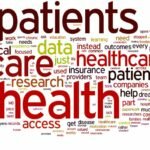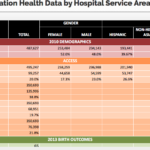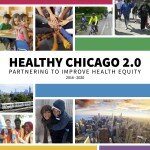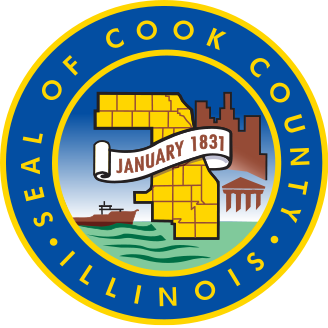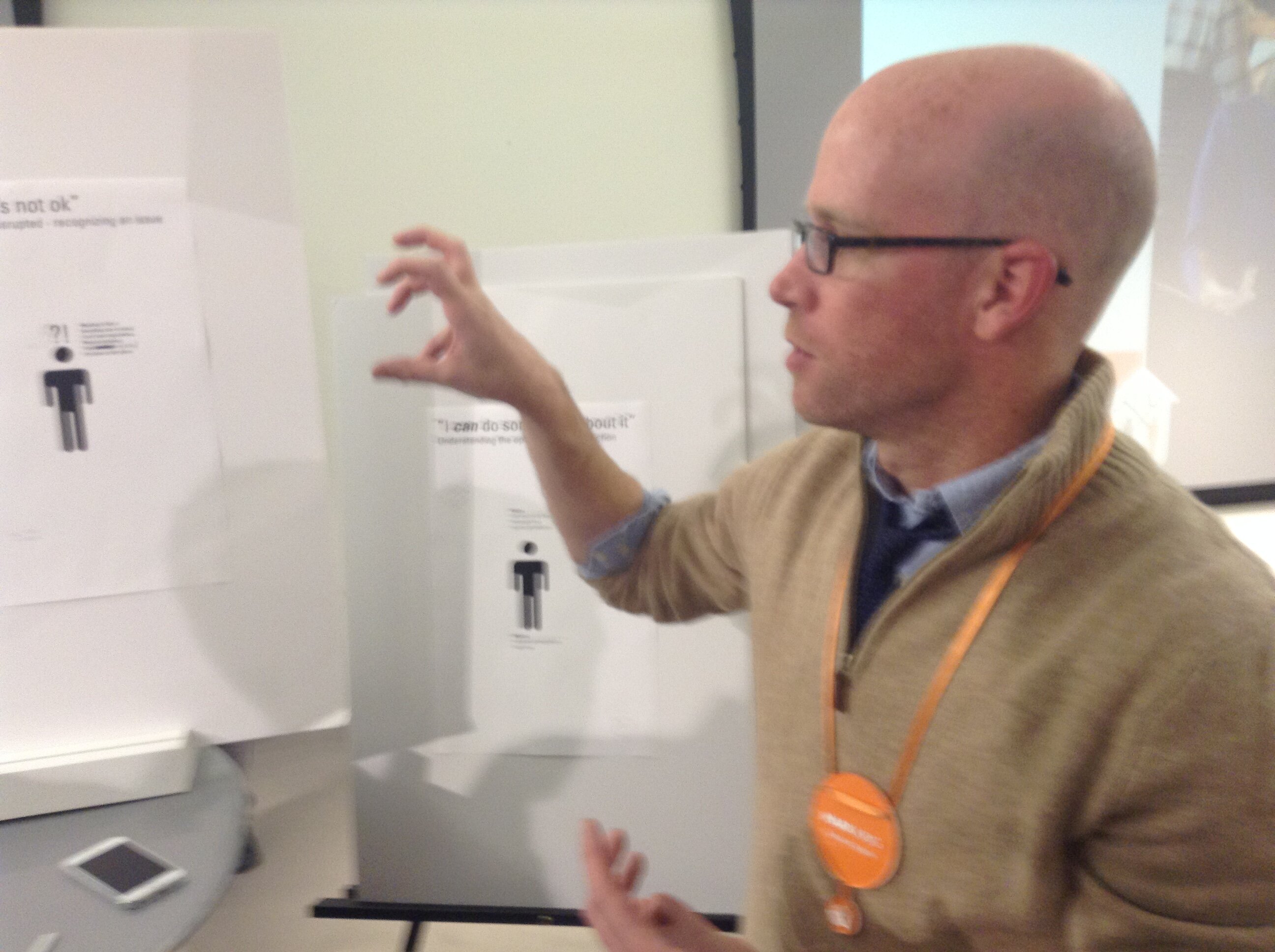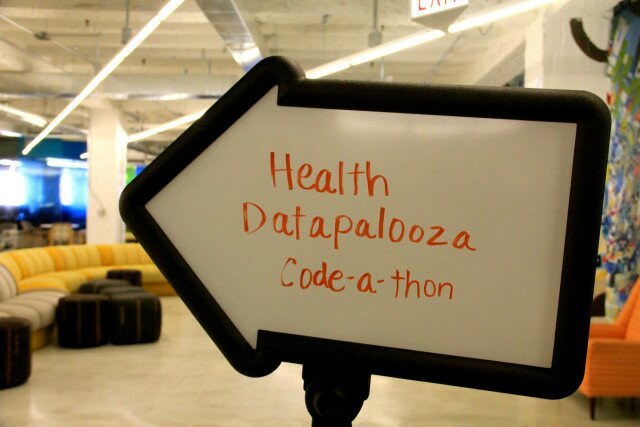 For this year’s National Day of Civic Hacking, we’re writing up primers on different civic issues to help people get a better understanding of the issues as they start working on projects.
For this year’s National Day of Civic Hacking, we’re writing up primers on different civic issues to help people get a better understanding of the issues as they start working on projects.
Below, we’ve listed out places where you can data on health, some examples of projects centered around health and human services , and some resources online to help you with your project.
Health and Human Services
Healthcare and the social services that are often connected to it is an extremely complicated and expensive issue. According to the Kaiser Foundation, the United States spent about $2 trillion dollars on health care.
In addition to regular healthcare, state and local governments spend a tremendous amount of funds on social services. The effects of the recession, pension crises in multiple states, and cuts from Congress have caused state and local governments to make drastic cuts to social services. This happened at exactly the time that more people required social services putting significant strain on the social safety net.
Aside from the big picture, the experience of those receiving social service is an innately human one – and an experience that most Americans don’t have. Most Americans at some point have to go to the DMV and the experience is often portrayed as downright in pop culture as downright terrible. The experience of being on social services often is worse – not in just the big picture sense, but in small ways. The social safety net is managed by a multitude of government agencies and nonprofit organizations.
Technology projects, such as mRelief, center around health and human services often try and help residents better navigate and understand the resources available to them.
Data Resources
Data.gov/health
The federal data portal contains over 800 datasets on health. We’ve highlighted some key ones:
- Hospital Charge Data: Data are being released that show significant variation across the country and within communities in what providers charge for common services. These data include information comparing the charges for the 100 most common inpatient services and 30 common outpatient services. Providers determine what they will charge for items and services provided to patients and these charges are the amount the provider’s bills for an item or service.
- Community Health Status Indicators (CHSI): to combat obesity, heart disease, and cancer are major components of the Community Health Data Initiative.
- CDC Cancer Statistics: The United States Cancer Statistics (USCS) online databases in WONDER provide cancer incidence and mortality data for the United States for the years since 1999, by year, state and metropolitan areas (MSA), age group, race, ethnicity, gender, childhood cancer classifications and cancer site.
County Government Data
Many county governments administer their own health and human service systems – some of which release this data to the public.
Cook County, IL (https://datacatalog.cookcountyil.gov)
- Burial Locations: The following page lists the final disposition sites of the indigents buried by the Cook County Medical Examiner’s Office.
- Health & Hospitals System – Outpatient Registrations, by Facility, Zip Code, Month – Fiscal Year 2011: Enclosed data represents outpatient registrations including hospital ancillary services
San Francisco, CA [City and County] (data.sf.gov)
- Child Care Subsidies, San Francisco, CA: Data illustrate the total number of state and non-state child care subsidies available as well as the number of children (0-12 years old) that are eligible for subsidies and the difference between these two numbers by zip code in San Francisco.
- HSA 90 Day Emergency Housing Waitlist: Provides the seniority list for entry into HSA 90 day emergency shelter waitlist. The list will be generated on 2/24/14 and updated twice daily.
State Government Data
States administer Medicare, Medicaid and often provide funding for local health and human service programs. Below is a highlight of some state data sets.
Illinois (data.illinois.gov)
- Affordable Care Act (ACA) Enrollment Summary Data: Affordable Care Act (ACA) enrollment data by age, race, gender, and county. (PDF)
- Reportable Communicable Disease Cases, 2010 – 2012: Data provided by the Communicable Disease Section of the Office of Health Protection’s Division of Infectious Diseases
New York (data.ny.gov)
- Assisted Outpatient Treatment) Court Orders: This dataset contains the number recipients with AOT petitions and court orders and their length of time on court order, by county, region and statewide.
- Genealogical Research Death Index Beginning 1957: The Genealogical Research Death Index assists individuals with locating New York State (NYS) death records that fall within defined genealogy years, exclusive of New York City recorded death records
City Government Data
Cities are also releasing data on health and social services. Here’s some highlights from different cities.
Chicago (data.cityofchicago.org)
- Food Inspections: This information is derived from inspections of restaurants and other food establishments in Chicago from January 1, 2010 to the present.
- Neighborhood Health Clinics (Historical): Former neighborhood health clinic locations, hours of operation and contact information. These clinics were closed or transferred to private management in July 2012
- Infant Death Mortality in Chicago: This dataset contains the annual number of infant deaths annually, cumulative number of infant deaths, and average annual infant mortality rate with corresponding 95% confidence intervals, by Chicago community area, for the years 2005 – 2009
Boston (https://data.cityofboston.gov)
- Asbestos Removal Permits: Boston Public Health Commission Asbestos permitting removal of asbestos.
New York City (https://nycopendata.socrata.com)
- New York City Leading Causes of Death: The leading causes of death by sex and ethnicity in New York City in since 2007
- New York City Health and Hospitals Corporation (HHC) Patient Satisfaction Survey: Patient satisfaction at HHC hospitals is measured by a standardized survey known as the Hospital Consumer Assessment of Healthcare Providers & Systems (HCAHPS). The survey has been validated by the federal Centers for Medicare and Medicaid Services (CMS) as a standard assessment tool for all hospitals throughout the nation.
- Most Popular Baby Names by Sex and Mother’s Ethnic Group, New York City: The most popular baby names by sex and mother’s ethnicity in New York City.
Potential Partners
The best civic apps are built through partnerships between technologists, residents, and the people who work on the front lines. Here’s a list of potential partners you can work with in your own cities to help build projects that can make an impact.
Health Data Consortium: The Health Data Consortium is a public-private partnership working to foster the availability and innovative use of open health data to improve health and healthcare. This organization is particularly useful for government agencies looking for help opening up health data.
Code for America Health Focus Team: The health focus area works to improve the health of people and their communities. Code for America works with the wide variety of teams that contribute to these outcomes—including city health departments, public health agencies, state offices, and non-profit organizations.
Smart Chicago Collaborative: Smart Chicago’s multiple health initiatives provide equipment, training, and information that allow residents to take action to improve their own health. We are strong advocates for promoting open data practices in the healthcare field. Smart Chicago is always happy to talk and share our work.
Local Health Departments: Local health departments are in the trenches on a daily basis working to make their communities healthier and can make great partners. The Chicago Department of Public Health was one of the first city agencies to jump into civic hacking with the Chicago Flu Shot app.
Examples of Health Related Projects
mRelief
mRelief is a site that simplifies the social service qualifying process with an easy-to-use form that can be accessed online and through SMS. Residents can check to see if they’re eligible for a variety of programs including food stamps, medicaid, WIC, and more.
EBT Near Me
EBTNearMe is the easiest way to find stores and surcharge-free ATMs where you can use your EBT card in California. It was build by the Code for America Health Team because California welfare recipients pay nearly $20 million per year in ATM surcharge fees partially because there isn’t an easy way to find the free ones.
It’s an open source project built with public retailer data from the USDA and ATM data graciously shared by the CA Office of Systems Integration.
Foodborne Chicago
Foodborne Chicago uses computers & code to search Twitter for tweets related to food poisoning in Chicago. The system does as much as it can to automatically zero-in on the tweets Foodborne thinks are really about a possible food poisoning case and really coming from Chicago. Then real humans from the Chicago Department of Public Health review the tweets and @reply back to people with a link back to this page where Foodborne asks for additional information. When they fill out the online form, it becomes a 311 service request to inspect the suspect restaurant.
Chicago Health Atlas
The Chicago Health Atlas a place where you can view citywide information about health trends and take action near you to improve your own health. The site displays large amounts of data from sources like the City of Chicago, State of Illinois, and local hospitals so you can get big-picture views of health statistics in Chicago like hospital admissions, uninsurance rates, cause of death, birth rates. and drill down deep into neighborhoods to see specific information and how it compares to the city overall.
People to follow on Twitter
@lippytalk: Jake Solomon is a member of Code for America’s health focus team and spent time on SNAP benefits so he could better understand the challenges that users face.
@reedmonseur: Raed Mansour works on #publichealth tech innovations for @ChiPublicHealth like @FoodBorneChi, BU #HealthComm Faculty, APHA Member, @PurdueAlumni & @BUalumni.
@PublicHealth: Official account of the American Public Health Association: For science. For action. For health.
@CDCgov: CDC’s official Twitter source for daily credible health & safety updates for Centers for Disease Control & Prevention.
